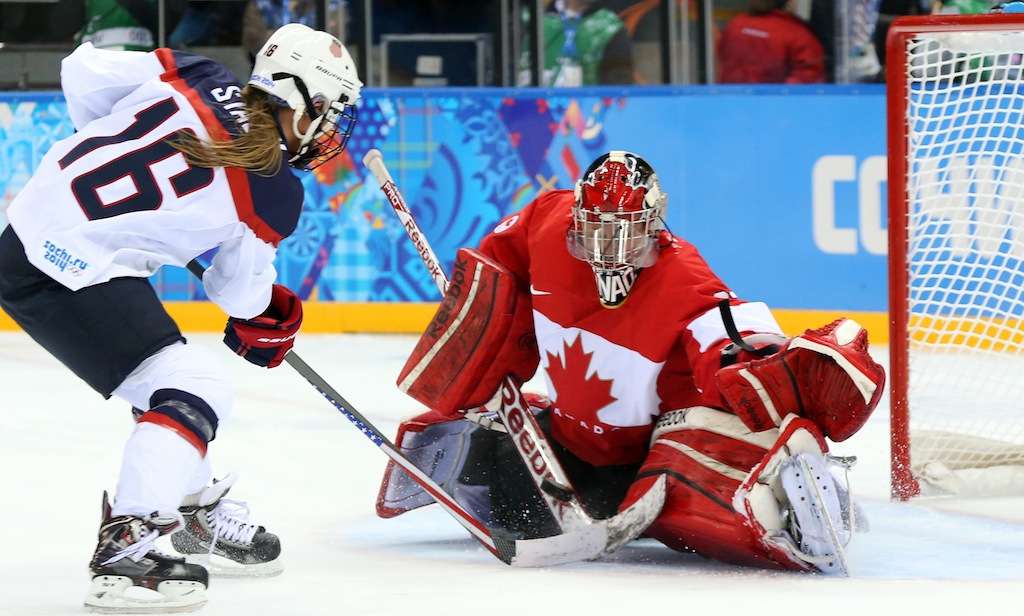On Thursday, the Canadian Women’ s hockey team won its fourth consecutive gold medal after an exhilarating comeback win over the United States. Although the squad is surely still celebrating, its joy may be dampened by the disconcerting whispers that the female edition of Olympic hockey may be axed in the future due to a lack of parity beyond the two North American powers.
These whispers started in Vancouver 2010, when then International Olympic Committee (IOC) president Jacques Rogge ominously stated, “We cannot continue without improvement [of non-established hockey playing nations],” in reaction to Canada’s string of absurd blowouts against the European competition. In reality, women’s hockey has nothing to fear for the foreseeable future despite the Canadian stranglehold on the gold medal; the sport’s Winter Olympic position is secure.
While Rogge might throw around coded threats, he knows that the Winter Olympics cannot afford to lose too many female athletes, especially those in one of its most exciting sports. The number of female events has increased to 38 this year, only seven fewer than the number of male events. Future Games will be looking to further this gender equality, and the IOC, after its efforts to increase the number of female events, cannot justify getting rid of a sport that contributes 168 athletes to the Olympics.
Parity still does not exist, but progress is being made. Those who are still frustrated by the large gap in development should be reminded that in men’s hockey, it took Sweden nearly 60 years to beat Canada; and yet, the two nations just squared off in the men’s final, and are the two most recent countries to have won Olympic Gold. Sochi brought with it the needed green shoots of improvement that Rogge called for, as no team was beaten by more than 10 goals—a drastic contrast to the Vancouver Games where Canada and the U.S. combined for five double-digit blowouts. This visible improvement will no doubt spark more interest in women’s hockey among youth in the competing European nations that already have strong hockey cultures.
In some eyes, the fact that the two best nations are in North America hurts ice hockey’s legitimacy as an Olympic sport. These arguments are unfounded. The Winter Olympics themselves are not global. Only 43 per cent of nations participate in the Games, and of those examples, there are countries such as Ethiopia who send only one athlete—which does not affect the medal tables. The same arguments for hockey being excluded for a lack of genuine competition can also be extended to the legitimacy of other sports that exhibit dominance among a handful of completing nations. For example, the Netherlands won 24 medals in Sochi over the past two weeks, and all 24 were in speed skating. If the IOC is really pondering getting rid of women’s hockey, why not do away with speed skating as well?
Look no further than softball at the Summer Olympics to see where the arguments for removing ice hockey are founded. Softball was voted to be removed for the 2012 games because the same four nations had made the semifinals in four straight Olympics. Ultimately, the IOC will understand that the women’s game must remain in the Olympics. Five-point-six million Canadians tuned into the gold medal game, a TV rating which will serve to bring in sponsorship and revenue through advertising for the Games.
Simply put, getting rid of women’s ice hockey at the Olympics would be financially unwise, and stunt the progress that is being made. No longer would spectators be watching the best in the world competing to see who can go faster, higher, and stronger. Rather, they would be stripped of the chance to see the best rivalry and the best drama of the entire Olympic spectacle.








